“THE BOND OF OUR COMMON HUMANITY IS STRONGER THAN THE DIVISIVENESS OF OUR FEARS AND PREJUDICES.”
-JIMMY CARTER
“I have one life and one chance to make it count for something… My faith demands that I do whatever I can, wherever I am, whenever I can, for as long as I can with whatever I have to try to make a difference”.
-Jimmy Carter.
During the campaigns that preceded the February 25th 2023 Presidential Election, the then Candidate of the All Progressives Congress (APC) and now President of Nigeria, Bola Ahmed Tinubu was captured in a photo somewhere in Europe playing with a couple of kids said to be his grandchildren.
His media minders wanted Nigerians to see Bola Ahmed Tinubu as a lover of Children and a man who loves humanity.
However, that human angle photo opportunity has a hidden message which only the discerning minds should be able to interpret accurately.
The photo tells us the primacy of child rights and the imperative of government putting measures, mechanism, legislative and executive frameworks in place to promote, protect and nurture not just child rights of all, but the human rights provisions enshrined in international law and domestic laws such as the chapter 4 of the Nigerian constitution. Strengthening institutions that work for promotion and protection of human rights and especially the rights of Children is strategic.
Therefore the logical beginning of my reflection on what should constitute the human Rights focus of the Presidency of Bola Ahmed Tinubu, naturally starts from child rights. It is regrettable that successive governments but one since democracy or a semblance of it emerged in 1999, have often paid lip service to the rights of Children. It was just the Olusegun Obasanjo’s government that vigorously worked to protect rights of children by introducing the Child Rights Act of 2003. Since then, it has been a tough battle to get all the states of the Federation to domesticate that good law.
This is therefore a clarion call on President Bola Ahmed Tinubu to ensure that all the 36 states of Nigeria come on the same slate with regards to the domestication and enforcement of the child rights Act.
Writing about what can be termed the Human Rights template of President Tinubu has been made very easy by the series of statements that he has made since after he was declared the winner of the hotly contested and disputed Presidential poll on February 25th 2023. His manifesto includes issues that speak to the centrality of protecting the human rights of all citizens and everyone in Nigeria. What is yet to be tested, is his will power and the needed political will to implement those lofty ideals and bring them to life to impacts on the living conditions of Nigerians going forward.
Bola Ahmed Tinubu in so much of his media outings, has conveyed the message that he will be a listening leader and not a dictator.
The new President has also projected insecurity, unemployment and the essence of unifying Nigeria as his most potent agenda. All these items of implementation have far reaching implications on the rightsbif the Niferian Children. As I said, what is important is implementation and not just pontificating on ideals with no template to bring them to fruition. Muhammadu Buhari, Tinubu’s successor, promised so much but failed to achieve significant milestones but instead added to the economic and security problems afflicting Nigeria.
And so when President Bola Tinubu says his immediate target is to ensure a higher Gross Domestic Product (GDP) growth and significant reduction in unemployment rate, Nigerians are actually hoping that he will not repeat the mistakes of his predecessor Muhammadu Buhari who is a colossal failure in all ramifications.
Tinubu said this in Abuja, in his inaugural speech, shortly after being sworn-in as Nigeria’s 16th President.
He said that his administration hope to achieve these through budgetary reform to stimulate the economy without engendering inflation.
“Our industrial policy will utilise the full range of fiscal measures to promote domestic manufacturing and lessen import dependency.
“Power generation should nearly double and tramission and distribution networks improved. We will encourage states to develop local sources as well,’ he said.
He assured local and foreign investors that his administration would review all complaints about multiple taxation and other “anti-investment inhibitions”.
“We shall ensure that investors and foreign businesses repatriate their hard-earned dividends and profits home, ”he said.
The above item of urgency as tabled by the freshly minted President has within it, the imperative of promoting and protecting Human Rights of all.
The 71-year-old succeeds 80-year-old former army general Muhammadu Buhari of the same party, who stepped down after two terms in office, leaving a country facing a sea of economic troubles and security challenges.
“As president of the Federal Republic of Nigeria I will discharge my duties and perform my functions honestly to the best of my ability, faithfully and in accordance with the constitution,” Tinubu said in a live broadcast from the capital Abuja’s Eagle Square.
In his inaugural speech, Tinubu also said: “”Whether from the winding creeks of the Niger Delta, the vastness of the northern savannah, the boardrooms of Lagos, the bustling capital of Abuja, or the busy markets of Onitsha, you are all my people,” Tinubu said.
“As your president, I shall serve you with prejudice toward none but compassion and amity towards all.”
The then All Progressives Congress presidential candidate, released an 80-page policy document that highlights an eight-point agenda.
Top on his priority lists of action plans was national security, economy, agriculture, power, oil and gas, transportation and education.
In the manifesto, Tinubu said his objective is to foster a new society based on shared prosperity, tolerance, compassion, and the unwavering commitment to treating each citizen with equal respect and due regard.
Here are 10 promises of the former Lagos State governor contained in the manifesto: Build Nigeria, especially for our youth, where sufficient jobs with decent wages create a better life; Manufacture, create, and invent more of the goods and services we require. Nigeria shall be known as a nation of creators, not just of consumers; Export more and import less, strengthening both the naira and our way of life; Continue assisting our ever-toiling farmers, through enlightened agricultural policy that promotes productivity and assures decent incomes, so that farmers can support their families and feed the nation; Modernise and expand public infrastructure so that the rest of the economy can grow at an optimal rate; Embolden and support our young people and women by harnessing emerging sectors such as the digital economy, entertainment and culture, tourism and others to build the Nigeria of tomorrow, today; Train and give economic opportunity to the poorest and most vulnerable among us. We seek a Nigeria where no parent is compelled to send a child to bed hungry, worried whether tomorrow shall bring food; Generate, transmit and distribute sufficient, affordable electricity to give our people the requisite power to enlighten their lives, their homes, and their very dreams.
Other highlights are to make basic healthcare, education, and housing accessible and affordable for all; And, most importantly, establish a bold and assertive policy that will create a strong yet adaptive national security architecture and action to obliterate terror, kidnapping, banditry, and all other forms of violent extremism from the face of our nation.
Now this is what I think should constitute the core of the development and Human Rights agenda Of the Tinubu’s administration- placing respect for child rights as a priority of the Federal government.
I do also think that the government should collapse the Federal Ministry of women Affairs and NAPTIP into a single Presidential commission to be known as Presidential Commission on family affairs to be headed by a reputable scholar of human rights and child rights.
There is the need for this commission to be known as Presidential Commission on family affairs because the idea of running a ministry for women makes no sense again because if the government tackles issues affecting children, the rights of women are thetefore encompassed and captured.
There is the need for this commission to emerge from the merging of NAPTIP and the Women Affairs Ministry including its agencies and this commission should launch a special operation against child sexual abuses and defilements that have reached epidemic proportions over the years.
Law experts say that defilement is one of the sexual offences under Nigerian Criminal Law. As a general rule, the offence of defilement is statutorily provided for under Section 218 of the Criminal Code Act. The section states that Any person who has unlawful carnal knowledge of a girl under the age of 13 years is guilty of a felony and is liable to imprisonment for life.
The Criminal Code Act is a federal statute applicable in Abuja. The act doesn’t have nationwide coverage as each state in the federation has the right to make its own criminal law. That explains why we have, for instance, the Criminal code law of Ekiti State, and the Criminal Code law of Delta state among others. The rationale is that crimes in Nigeria are generally territorial.
This distinction is important because the victim’s age for the offence of defilement varies according to each code. For example, in Delta state, defilement is a crime committed against a girl under the age of 11 years while in Lagos State, it is under the age of 18 years.
To succeed in a case of defilement, says a legal scholar of note, the prosecution must prove beyond reasonable doubt the following ingredients: 1. that the accused had sex with the child who was under the age of 11 years; 2. that there was penetration into the vault of the vagina; and 3. that the evidence of the child must be corroborated.
The expert wrote too that the evidence for defilement is the same as in rape except that for defilement, it is immaterial whether the act was done with or without the consent of the child. A girl under the age of eleven is a child and so is not capable of consenting to sex. The court would hold that she did not consent even if she did consent. A child cannot consent to sex as held in Onwuta v. State of Lagos (2022) 18 NWLR (Pt. 1863) 701. Similarly, in Ahmed v. Nigerian Army (2016) 17 NWLR (Pt. 1540, the court held that in the offence of rape, lack of consent is material, in a case of defilement, the consent of the prosecutrix is immaterial.
Citing the decided case of Adonike v. State (2015) 7 NWLR (Pt. 1458) 237, on or about the 16th day of June 2010, the appellant invited and requested a child of 5 years of age to buy a sachet of water for him. On her return, the appellant lured her into his room, pulled her pant, and had carnal knowledge of her. The appellant was arrested and charged to court for defilement punishable under section 218 of the Criminal Code Cap. 48 Volume 11, Laws of the defunct Bendel State 1976 as applicable in Delta State. The trial court sentenced him to six years imprisonment. The conviction was also affirmed by both the Court of Appeal and the Supreme Court.
Furthermore, when a child gives evidence and says that the accused had sex with her, the court cannot convict the accused on the uncorroborated testimony of the child alone. The evidence given by the child must be corroborated. Corroboration is independent evidence that confirms or makes more certain the testimony of the child and may be: (a)admission by the accused person that he committed the offence; or (b)circumstantial evidence; and (c)medical evidence.
To underline the severity of defilement of kids in the contemporary Nigetian society which necessitates our call for the human rights of children to be the major human rights agenda Of the current federal administration, the Sexual Assault Referral Centre (SARC) in Zamfara recently said it had recorded a total of 160 cases of sodomy, ‘defilement’ and rape in one year.
The coordinator of the centre, Ahmed Shehu, made this known in Gusau while receiving members of the Zamfara Children Parliament who were on a visit.
The News Agency of Nigeria (NAN) reports that the visit to the centre and remand home in Gusau was supported by the Save the Children International, an NGO.
Mr Shehu said that the cases involved mostly underaged children and teenagers.
He described the rate of rape and assault of children in the state as alarming, saying there was cause for serious concern.
“We received a case of a father who assaulted his four-year- old biological daughter,” he said. “We need both governmental and individual support on this issue, especially at the community level.”
Mr Shehu, who said the centre was facing a serious challenge in the area of funding, noted that this was affecting its ability to carry out its responsibilities.
“We are seriously facing inadequate funding and lack of enough accommodation.
We need government support to improve this centre, especially to expand it in a way that we can admit more victims.
“The current situation is that we cannot admit victims; we can only treat people.
“We want to have children room and the standard SARC cannot be completed without children room,” he said.
He thanked the state ministries of justice, health as well as women, children and social development for the support they had been giving to the centre.
Mr Shehu, however, called on the people, especially parents, to be vigilant and monitor their children.
He also urged parents hiding rape cases involving their children to always report such incidents, saying they were not doing them any good.
Earlier, Sumayya Aminu-Aliyu, the Speaker of the Children Parliament in the state, said that the visit was part of efforts to assess the situation and challenges affecting children in the state.
Zamfara is not an isolated case study because grievous abd egregious sexual violence against children, are very extensive all over the nation beginning from Lagos and as far as Sokoto and Cross Rivers States.
I say the aforementioned because the Lagos State Government has said a total of 4,860 cases of domestic violence, rape, sexual assaults and others were reported in the state between September 1, 2021, and July 31, 2022.
The state Attorney General and Commissioner for Justice, Moyosore Onigbanjo, disclosed this on Wednesday during a press briefing to commemorate September as the Domestic and Sexual Violence Awareness month in Alausa, Ikeja.
Onigbanjo said the figure included 2,029 cases of domestic violence and 488 cases of non-gender based violence within the period.
He said, “From September 1, 2021 to July 31, 2022, the Lagos State Domestic and Sexual Violence Agency handled 4,860 cases which are into two categories: adults and children. The breakdown of the cases is as follows: domestic violence -2,029; rape -65; sexual assault -40; attempts to commit rape -10; sexual assault by penetration -5; threat to life -73; and 488 others (separation, not taking responsibilities of child(ren), neglect, custody of the child, non-gender based violence etc.)”
The commissioner further stated that about 868 children and nine persons living with physical disabilities affected have been helped by the DSVA.
“A total of 1,578 children have experienced emotional abuse (i.e. these children have been exposed to domestic violence within the home). 55% of these children have been taken through counselling programmes to ensure they are able to psychologically deal with the events they have witnessed without them having a permanent and negative impact on them.
“In the period under review, the agency provided services to nine persons with disabilities who were experiencing one form of gender-based violence or the other. The youngest child that experienced sexual violence in the year under review was eight months, whilst the oldest client that experienced domestic violence was a 75-year-old woman and 89-year-old man,” he added.
EMMANUEL ONWUBIKO is head of the HUMAN RIGHTS WRITERS ASSOCIATION OF NIGERIA and was NATIONAL COMMISSIONER OF THE NATIONAL HUMAN RIGHTS COMMISSION OF NIGERIA.






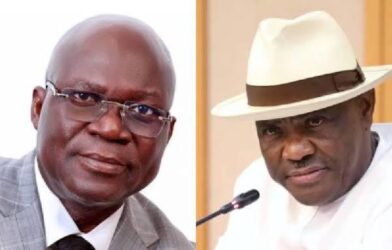
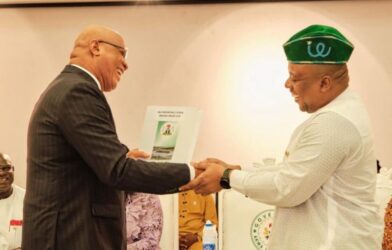
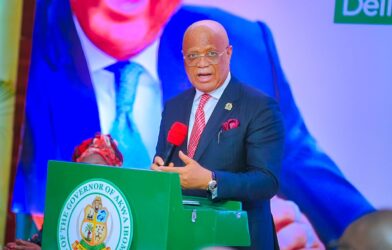
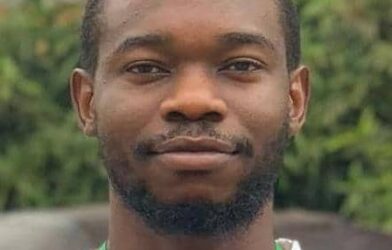

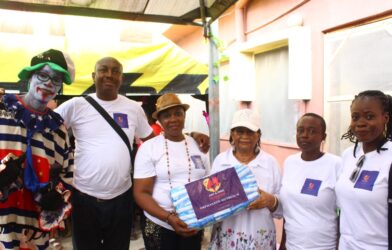
Comments are closed